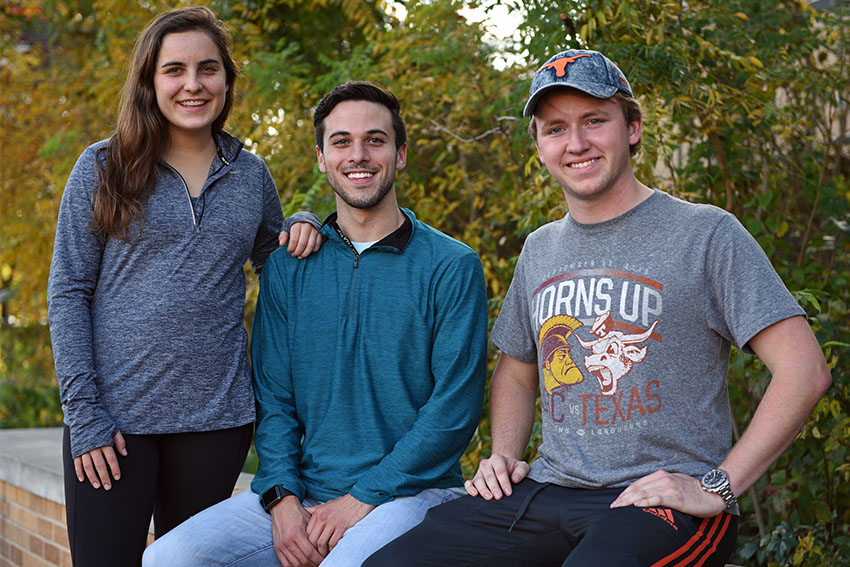When an elementary school student raised his hand to ask what a football looked like during his first after school session, coaches from Students Creating Opportunities for Recreational Exercise Athletics realized the impact their program could have.
SCORE, a UT student organization and nonprofit, works with Austin elementary schools in a lower socioeconomic area to create after-school sports programs coached by UT student mentors.
“We grew up around football, we watch it on TV and we go to football games every Friday night in high school,” SCORE CEO Connor Alexander said. “The idea that someone doesn’t know what a football looks like seems crazy to us, but that really explains how much this program means to these kids.”
SCORE Athletics started as a class project and became an official nonprofit after the group was named one of the winners of Envision Austin 2018, Alexander said.
“All of us at SCORE are passionate about the way team sports taught us communication skills, leadership skills and how to work together as a team,” government sophomore Alexander said. “We feel that there’s no better way to teach those skills than through team sports, especially at that age.”
SCORE provides the elementary schools with soccer goals, balls, jerseys and other maintenance equipment. Once the nine-week program is over, schools will keep the equipment, chief communications officer Jonathan Walsh said.
“That is something SCORE is trying to eliminate, that cost of time and energy that might hinder these kids from participating in team sports,” Alexander said. “There are sports leagues around Austin and other opportunities for them to get involved in sports but those cost money.”
In their first semester, members of SCORE worked with students from Harris and Pecan Springs elementary schools once a week for an hour to 90 minutes. Next semester, the nonprofit will expand to three additional schools, Walsh said.
“We target Title I elementary schools that are under-resourced because that’s where we think we can have the greatest impact,” said Walsh, an electrical engineering and government sophomore. “We also work closely with Communities in Schools coordinators to see how we can best help students.”
Letsvia Reyes-Lerma, the Harris elementary school CIS coordinator, said some students have told her their parents won’t let them play outside at their apartment complexes because of a lack of parental supervision.
“Although we have other after-school programs here at Harris, nothing compares to having college students mentor and encourage our students to succeed,” Reyes said in an email. “It’s not just outdoor play. It’s a life skill that our students are being coached on.”
Reyes said both students and parents are very pleased with the program.
“Our teachers have also reported the difference it is making in the classroom,” Reyes said. “Students are displaying improved classroom conduct and positive social skills. Students look forward to Mondays because of our SCORE Program.”
Cooper Carlyle, the SCORE chief financial officer, said he and the other officers spend 15 to 20 hours per week running the nonprofit.
“The responses we have received kind of justify all the work and countless hours we put into it,” finance sophomore Carlyle said. “The work we are doing is helpful to kids beyond sports.”





















